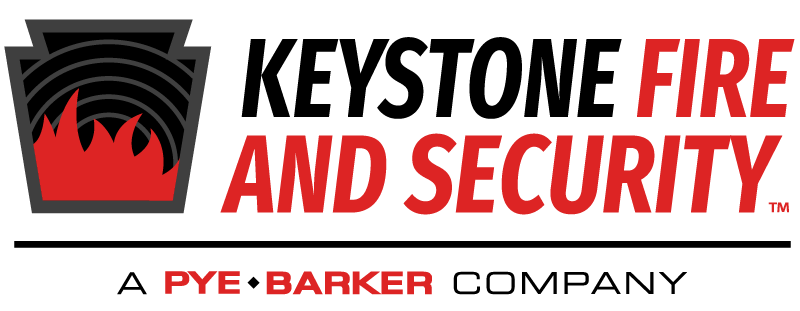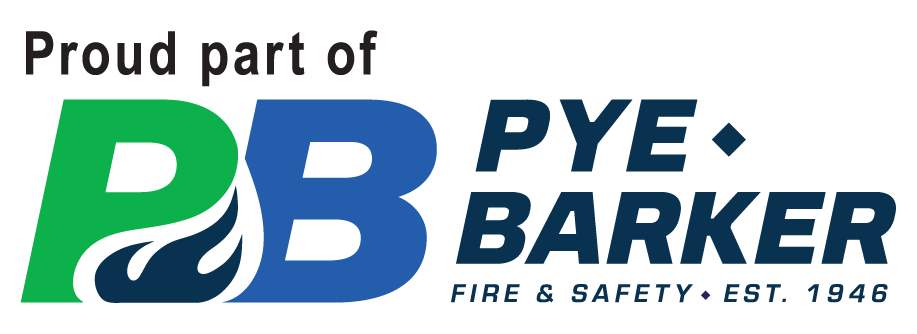By: Lauren Handley, Keystone Fire and Security PR and Social Media Coordinator
“It’s just wonderful,” says Emily Holt of West Windsor Parking Authority. “Really, I don’t know how I would do my job without all of it or do my job really well without all of it.”
A license plate recognition camera sits atop an enforcement vehicle outside West Windsor Parking Authority in Princeton Junction, New Jersey. (Lauren Handley/KPI Group USA, LLC)
West Windsor Parking Authority, located in Princeton Junction New Jersey, has the unique challenge of patrolling more than 1,500 parking spaces in one of the largest New York City commuter corridors. An added layer of complication comes from zoning – some of the land is New Jersey-owned and some is owned by West Windsor.
WWPA outfitted their original car with another security company, but moved to Communication Systems Integrators, LLC for service in 2017. A little over a year later, WWPA opted for Keystone Fire and Security’s additional managed services to include AutoVu by Genetec, a cloud-based host for ALPR. In 2019 they added an additional, LPR-equipped car to their fleet and trusted Keystone Fire and Security to replace an old camera on another vehicle, as well.
Emily Holt, parking enforcement officer and office administrator at WWPA explains how this technology has transformed the way they operate.
Tell me about West Windsor Parking Authority. On a Friday morning during COVID-19, it looks like a quiet town. So what are your parking enforcement officers patrolling?
It is one of the largest commuter centers into New York – that’s pre-COVID. So, thousands of people literally come through here to commute into the city. I mean, some people commute into Philadelphia as well, but most of them are going into New York. We basically are one of the biggest hubs – commuter hubs – along the New Jersey transit AMTRAK corridor in the northeast. So, if you were here anywhere from 5 to 7 in the morning it would just be bumper to bumper traffic and people acting crazy. We always say people lose their ability to reason when they can’t find a parking spot and their train is coming – they’ll park anywhere. Then you have people coming in and out through the day and people looking for long term parking if they’re going to be on vacation.
How many parking enforcement officers do you have?
So, technically two full time. We have a part time person who has been here for, I want to say, close to 15 years, but because of COVID he was put on furlough. And we have another person who’s not really doing enforcement, but because it is crazy with traffic in certain lots, we have him out there to help manage that because, again, people are doing crazy things, like taking up handicap spaces when they shouldn’t be to drop off people. So, we needed someone to keep some order. That’s really all we have for enforcement.
What did parking lot enforcement look like prior to outfitting vehicles with License Plate Recognition technology?
From what I understand, the previous parking enforcement officers were literally walking in the lots. And you can see from this picture here [below] that’s a lot to walk. So, one of the lots alone have about 1200 spaces. They walked it and had hang tags, and I guess they were looking for the [cars without displayed] tags. Really, I don’t know how they did it. I don’t know if I could go backwards from what we have now to that.
Why did West Windsor Parking Authority decide to implement LPR technology?
It existed before I did, but from what I understand, our board of directors – two members of our board – had been to a parking conference and had seen a Genetec presentation, and they were just so blown away by the LPR and how it probably could be applied here to make everyone’s jobs easier. Our board was very impressed by the technology, so they bought it. It has worked very, very well for us.
How has it helped operations specifically?
We have a combination of daily pay lots and permit lots. The LPR helps us track that. I guess sometimes people pay for daily parking and they park in a permit lot and vice versa. I don’t know why you’d want to park in a pay lot if you had a permit because they’re technically nicer lots, but people get confused or they’re in a hurry.
With the LPR technology we also have the capacity to go through a lot and scan all those plates so quickly, so we can tell who didn’t pay, we can tell who doesn’t have a permit, we can tell if someone with a permit parked in the wrong permit lot. These are technically all parking offenses that we can ticket for.
We have a unique situation where some of the land here is owned by New Jersey transit and some of the land is owned by West Windsor, so we also have zones and there are zone infractions. That’s all picked up by the technology.
It has just made us smarter about how we go about our job. It has made us more efficient. We can go through these lots several times a day easily.
Can you tell me about the database technology you use that helps log this information?
We also work with T2 systems. They have some sort of relationship with Genetec. T2 manages our database of permit holders because that’s all custom and that can change depending on who’s coming and going. For the most part people hold on to permits. They also have a computer program called Iris. Iris will tell me everybody who has paid if I enter a license plate, everyone who has paid in a daily lot. I have all of these tools when I’m out in the field.
All that data is what Genetec pulls from, so all that data has to be current. It’s also pulling in all the information from the Park Mobile app telling me who has paid through the app. So, there are a lot of things in play out there, and for the most part they’re all working at the same time.
All of that allows us to do our job better and pull reports. We all can go in and get a count and reads for how many people are in a lot so we have an idea that helps us forecast for the future. It will even tell me when I’m out in a permit lot if I have two people who are sharing one permit, which is not allowed. It’s one permit per car.
It’s just wonderful. Really, I don’t know how I would do my job without all of it or do my job really well without all of it.
In 2018 WWPA opted for the Keystone Fire and Security managed services, which moved all your data to the cloud. For some, that takes a lot of trust in the security company they are working with. What made West Windsor decide they were ready?
Here I think the feeling was that this cloud-based technology was sort of here and the future, really, for how we would continue to do business. At my prior company, I had taken it to a cloud-based operation because we were working in two different states. We had a lot of downtime and we couldn’t access things at the same time. Switching to the cloud really had solved a lot of problems. So here, at WWPA, we had talked about it because we didn’t really feel that our equipment was great, and we didn’t really want to make a huge investment in our equipment or upgrading our equipment.
And then the other thing is – for some reason, we have a lot of power outages here. I don’t know if people hit poles or whatever. When that was happening, it would take down the server here and then that would take out everything we were doing in the field. So, we would just go down. That was really impacting how effective we were. It was very frustrating to be out in the field and to have the server go down. Then we lose everything and have to start all over again.
Since moving to the cloud, I can’t even think of one time that we went down. When a power outage happens, our office may be down, but out in the field we could still continue to do our jobs.
It really was pretty much an evolution; you know, an evolution in the technology and an evolution in our relationship. So, it really was kind of a no brainer for us to go ahead and do that because all the updates are being done. We didn’t want to have to worry about that. We didn’t want to have to worry about plugins. We sort of really wanted this whole… almost like pressing an easy button if you will.
As someone who has personal experience using LPR technology, would you say it is user friendly?
Extremely user friendly because if I could do it, then anybody could do it. Sometimes I feel that I could almost do it blindfolded. What’s that saying with Ginger Rogers on dancing with Fred Astaire? “I did everything he did, but backwards and in high heels.”
I find it very, very user friendly and intuitive. There are even things that I figured out about the systems that has helped me not give a ticket, which someone might end up in court for that really wouldn’t have to be because they have a simple license plate error. So sometimes I can figure out if somebody entered their plate wrong – this would be in the daily lot – and then I don’t have to give them a ticket; I’ll just give them a warning that says ‘I realize basically you paid but you did enter your plate incorrectly and we’re just giving you a warning.’ And we give out a lot of those. It’s easy to make mistakes. Your train is pulling in and you hit a B instead of an A.
What is your overall takeaway in working with Keystone Fire and Security on LPR installation and continued service?
I’m very happy that we have Keystone Fire and Security and the people that we have. I feel like we have a good working relationship. I know I can always call and get an answer, someone is going to respond quickly. It’s something we’re always looking at making better, and Keystone Fire and Security is always on the cutting edge of technology so we have a lot of respect for Keystone Fire and Security. We have a good working relationship with Kyle, the Keystone Fire and Security IT Manager, and Emily, our Keystone Fire and Security Life Safety Advisor.
Contact Us Today
Keystone Fire and Security is a Genetec Unified Elite Partner and trusts AutoVu Managed Services in connecting your LPR SharpV camera to the cloud. AutoVu is hosted on Microsoft Azure and keeps lists, hit, and read data accessible at all times from any back-office workstation. Enforcement vehicles connected to the system use cellular networks to receive continuous list and hit updates while on patrol.
To learn more about how LPR technology can benefit your business, contact the experts at Keystone Fire and Security.

